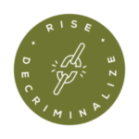Challenges to Freedom of Association for Marginalized Populations in EECA
A joint submission to Draft General Comment No. 38 on Article 22 (Freedom of Association) of the International Covenant on Civil and Political Rights was prepared by Eurasian Harm Reduction Association – EHRA, Eurasian Coalition for Health, Rights and Sexual Diversity – ECOM, Eurasian Women’s Network on AIDS – EWNA, Sex Workers’ Rights Advocacy Network – SWAN.
